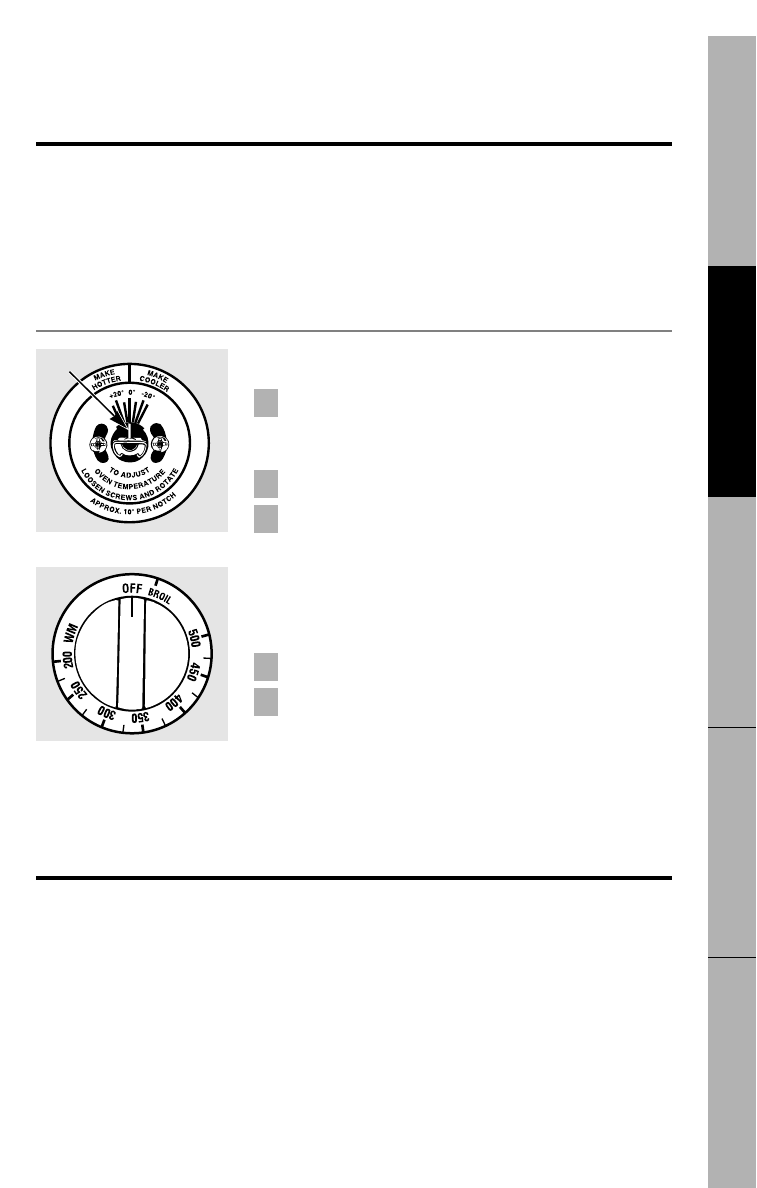
Adjust the oven thermostat—Do it yourself!
You may find that your new oven cooks differently than the one it replaced.
Use your new oven for a few weeks to become more familiar with it. If you
still think your new oven is too hot or too cold, you can adjust the thermostat
yourself.
Do not use thermometers, such as those found in grocery stores, to check the temperature setting of
your oven. These thermometers may vary 20–40 degrees.
To Adjust the Thermostat
Pull the Oven Temp knob off the shaft, look at
the back of the knob and note the current setting
before
making any adjustments.
Loosen both screws on the back of the knob.
To
increase
the oven temperature, move the pointer
1 notch toward the words
“MAKE HOTTER.”
To
decrease
the oven temperature, turn the pointer
1 notch toward the words
“MAKE COOLER.”
Each notch changes the temperature by 10 degrees Fahrenheit.
Tighten the screws.
Replace the knob, matching the flat area of the
knob to the shaft.
5
4
3
2
1
Back of OVEN TEMP knob
Troubleshooting TipsInstallation Instructions
Customer Service
Operating InstructionsSafety Information
Pointer
Front of OVEN TEMP knob
(knob appearance may vary)
The type of shortening will affect
baking performance!
Most recipes for baking have been developed using high fat products such
as butter or margarine (80% fat). If you decrease the fat, the recipe may not
give the same results as with a higher fat product.
Recipe failure can result if cakes, pies, pastries, cookies or candies are made with low fat spreads. The
lower the fat content of a spread product, the more noticeable these differences become.
Federal standards require products labeled “margarine” to contain at least 80% fat by
weight. Low fat spreads, on the other hand, contain less fat and more water. The high
moisture content of these spreads affect the texture and flavor of baked goods. For
best results with your old favorite recipes, use margarine, butter or stick spreads
containing at least 70% vegetable oil.
17


















